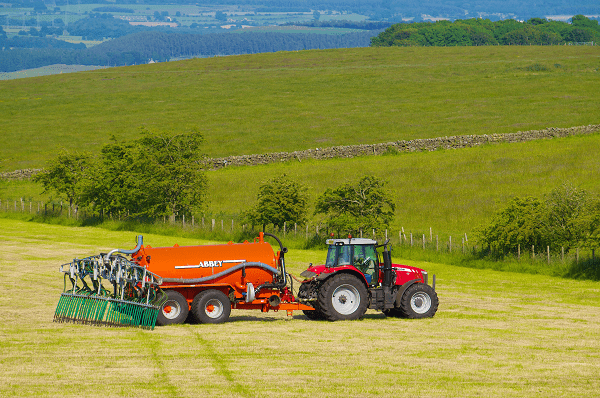
New rules applying to England mean that farmers must use an urease inhibitor from 1 April to 15 January when using solid or liquid urea.
Unprotected solid and liquid fertiliser containing urea can only be applied between 15 January and 31 March, according to the new rules that are designed to mitigate ammonia emissions.
There is an exemption for liquid fertilizer in that unprotected liquid fertiliser containing urea can be applied between 1 April and the last application in autumn only if agronomic justification is provided by FACTS-qualified farm personnel or advice specific for the crop has been provided by a FACTS – Qualified Adviser.
In Northern Ireland, Scotland and Wales, fertiliser containing solid and liquid urea can be “applied as per relevant legislation.”
The rules are part of a voluntary industry scheme, developed by the Agricultural Industries Confederation (AIC) and designed to avoid further legislation or a total ban on urea.
Jo Gilbertson, AIC’s head of fertiliser, said in January 2024: “The industry’s collective agreement with the government to use inhibitors, and therefore avoid the very real threat of an outright ban on urea fertilisers, was hard won last year.
“It is imperative that the entire farming industry maintains its clear commitment to support this arrangement in the face of the ever-present threat of regulation.”
The National Farming Union (NFU) Deputy President Tom Bradshaw said on the NFU’s website last year: “We have informed DEFRA [UK’s Department for Environment, Food and Rural Affairs] that the industry self-regulation approach to the use of uninhibited urea fertiliser under a new Red Tractor standard be enforced from 1 April 2024.
“The NFU and industry partners fought hard for nearly two years to achieve a robust and pragmatic industry-led approach, without this, the clear proposal from DEFRA was an outright ban on the use of uninhibited urea fertilisers.
“Using uninhibited urea saves farmers £13.8 million annually. And its value stretches further when you consider its role in keeping the UK market competitive and minimising nutrient leaching risks associated with early season use of ammonium nitrate.”